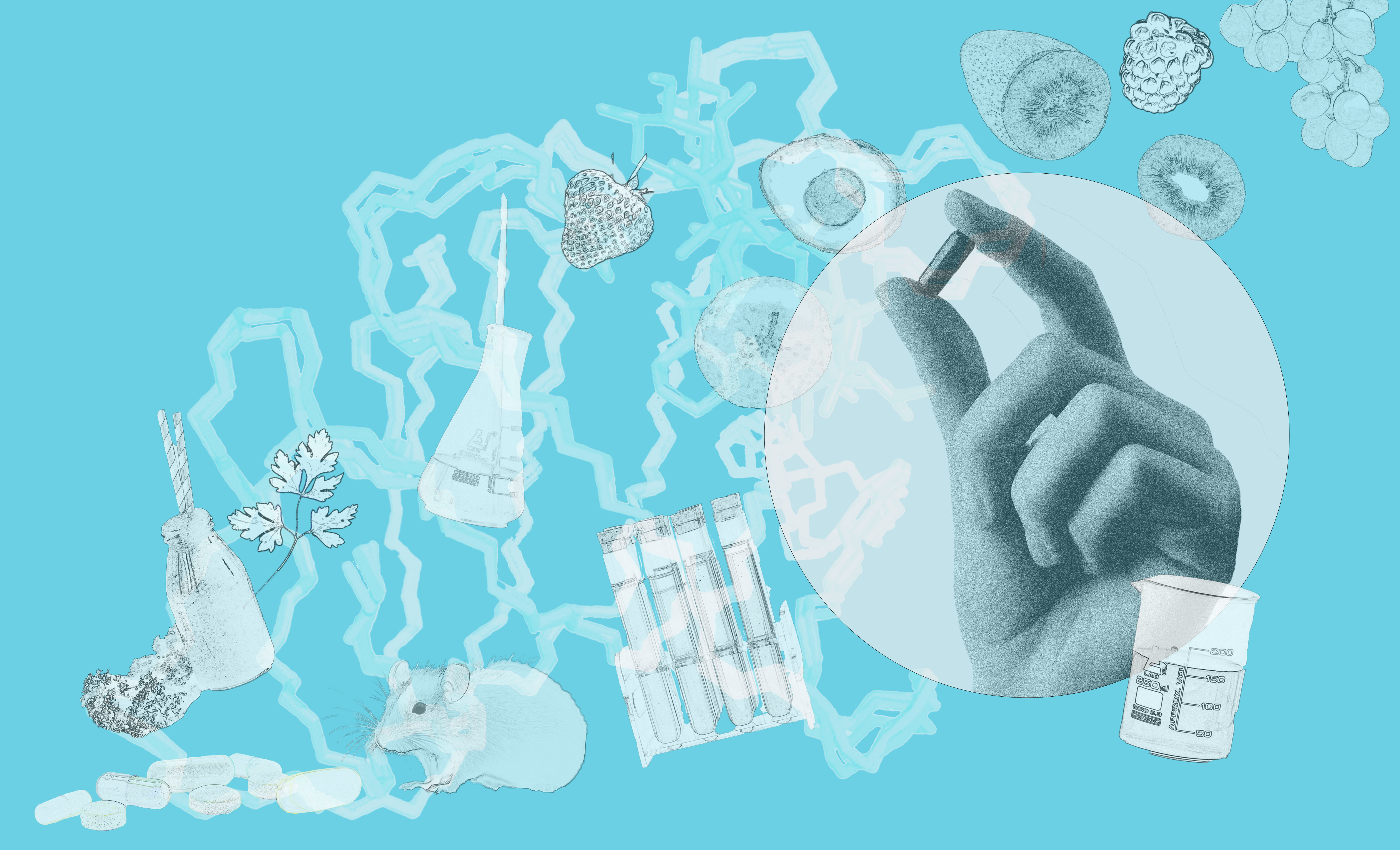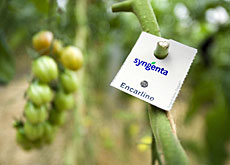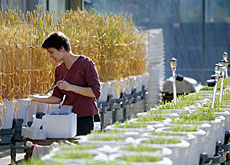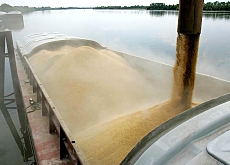Researcher bites into forbidden fruit

A Swiss scientist is using a novel genetic method to make apples resistant to fungal disease. The technique could win public acceptance.
Plant pathologist Cesare Gessler of the Federal Institute of Technology in Zurich is introducing a gene to the Gala variety from a wild species resistant to scab – a disease that can significantly reduce fruit yields.
The new genetic technique is known as cisgenic. Cisgenic plants contain only genes that are already present in varieties of the same plant.
This differs from transgenic modified plants which have foreign genetic material introduced to them.
“We decided early on that we didn’t want to produce any transgenic plants,” Gessler said. “Our plants have been genetically improved, but we use only apple DNA.”
Gessler says the field test with the Gala variety of apple will most likely begin in late 2009.
The “Cis factor in the apple genome” is a federally funded project that has multiple goals: Make the apples resistant to scab, ensure they only contain apple genes, and see what influence the modification has on the quality of apple trees.
Gessler and his team at the Institute for Integrative Biology also say the new approach to genetic engineering “could increase the likelihood of [its] public acceptance”.
The researchers will carry out surveys to see how producers and consumers will react to cisgenic apples.
Moratorium
In 2005, the Swiss voted in favour of a five-year ban on the use of genetically modified organisms (GMOs) in agriculture. Scientific research, however, is still permitted.
In theory, the scientist’s apples could be certified organic but GMOs of any kind are strictly banned by Switzerland’s organic regulatory bodies.
However, organic-certified fruit in Switzerland is not free of chemicals.
An organic farmer can treat his fruit trees up to 18 times a season with solutions containing copper. Copper is an effective treatment against anorganic fungicide – and is permitted by Biosuisse, even though the certification body considers it a risk to both human health and the environment.
“Our scab resistant apple variety would reduce spraying with fungicides by about eight times a season,” Gessler explained. “That is a very high success rate.”
Fire blight
Apple scab is the worst fungal disease found in Swiss orchards and leads to large reductions in fruit yields if left untreated.
Orchards are also plagued by fire blight, and the tests will show whether the gene modification can also help against this disease.
“We aren’t as far with fire blight as we are with apple scab,” Gessler said. “There are old apple varieties resistant to fire blight but we cannot clearly assign this resistance to a particular gene.”
Surprisingly, Gessler favoured the GMO moratorium. In his opinion, GMOs were not ripe for the market at the time.
He still does not have a problem with the restrictions, seeing them as incentive to continue research.
swissinfo
Apple scab is a disease of apple trees caused by the fungus venturia inaequalis.
The disease manifests as dull black or grey-brown lesions on the surface of tree leaves, buds or fruits
Fruits and the undersides of leaves are especially susceptible.
The disease rarely kills its host, but can significantly reduce fruit yields and fruit quality.
Affected fruits are less marketable due to the presence of the black fungal lesions.
In 2005 Swiss voters accepted a proposal for a five-year blanket ban on genetically modified organisms (GMOs) in Swiss agriculture.
The result forced the Swiss government to put in place some of the toughest legislation on GMOs in Europe.
The European Union, of which Switzerland is not a member, ended a six-year moratorium on accepting applications for new genetically modified foods in 2004.
But Germany and France, two of Switzerland’s neighbours, have both voted to uphold national bans on products they deem unsafe.
Spain is the only EU country that has been growing GMOs (GM maize) in any significant quantities. Otherwise, the EU remains largely GMO-free.

In compliance with the JTI standards
More: SWI swissinfo.ch certified by the Journalism Trust Initiative












You can find an overview of ongoing debates with our journalists here . Please join us!
If you want to start a conversation about a topic raised in this article or want to report factual errors, email us at english@swissinfo.ch.